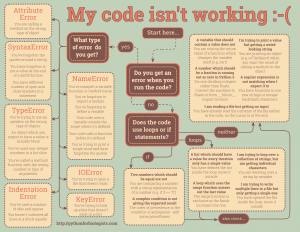How to ask for help: Difference between revisions
No edit summary |
No edit summary |
||
| Line 1: | Line 1: | ||
Having problems is normal. Please follow these six steps BEFORE you ask for help: | Having problems is normal. Please follow these six steps BEFORE you ask for help: | ||
== Problem Solving Steps == | |||
# Google the problem in general terms. For example: <code>python how to import a calendar</code> | # Google the problem in general terms. For example: <code>python how to import a calendar</code> | ||
| Line 7: | Line 9: | ||
# Google the specific error message your program is raising | # Google the specific error message your program is raising | ||
# Don't ask your teacher until you have a '''very specific''' question. | # Don't ask your teacher until you have a '''very specific''' question. | ||
== Click the image to learn about common mistakes == | |||
[[File:Problem.png|center|thumb|caption|You must learn to solve problems.]] | [[File:Problem.png|center|thumb|caption|You must learn to solve problems.]] | ||
== Other problem-solving strategies == | |||
# walk away for a few minutes | |||
# take a short break (2 to 3 minutes) | |||
# physically stretch your body | |||
[[Category:problem solving]] | |||
Revision as of 15:08, 14 April 2016
Having problems is normal. Please follow these six steps BEFORE you ask for help:
Problem Solving Steps[edit]
- Google the problem in general terms. For example:
python how to import a calendar - Re-read your code (sometimes, reading backwards help you see little errors)
- Use your debugging tools
- Ask a friend
- Google the specific error message your program is raising
- Don't ask your teacher until you have a very specific question.
Click the image to learn about common mistakes[edit]
Other problem-solving strategies[edit]
- walk away for a few minutes
- take a short break (2 to 3 minutes)
- physically stretch your body
